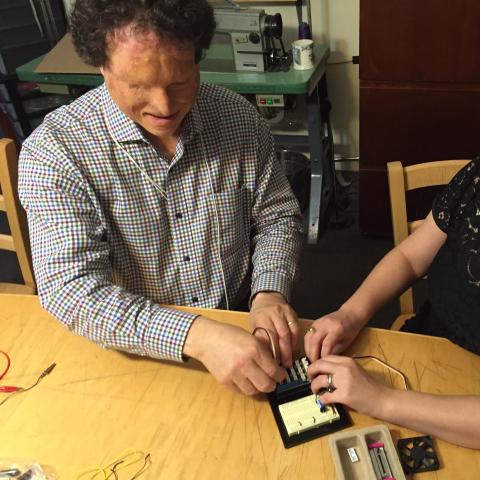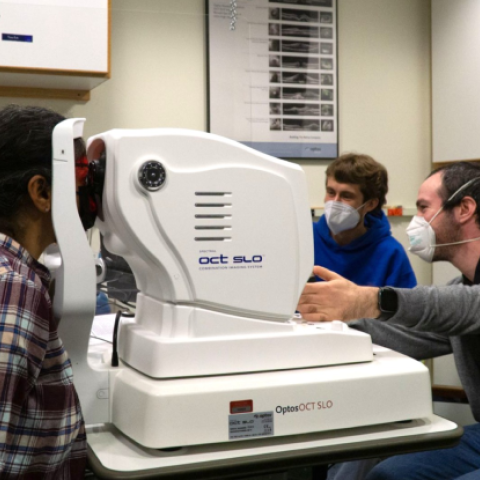
The Blind Arduino Project grew out of a community effort led by Dr. Miele in late 2015 to better understand barriers faced by blind people wanting to participate in the vibrant global culture of DIY hardware prototyping.
Arduino is an inexpensive, open-source electronics platform used by everyone from young hobbyists to high-tech developers to build computerized devices integrating sensors, motors, displays, wireless communications, and a host of other tools. Arduino is used in schools to teach children basic principles of design and computer science, in industry to quickly and inexpensively develop prototype devices for market, in universities to build innovative equipment for research, and by millions of Makers around the world to build robots, radio-controlled vehicles, home automation devices, and much, much more. You can learn more about Arduino on Wikipedia.
Preliminary research indicated that, while blind people could independently develop projects using Arduino, many of the important accessibility steps were undocumented and unknown. Smith-Kettlewell has a long-standing history of supporting the needs of blind STEM students, electronics enthusiasts, and technical professionals, and it fit perfectly into our mission and expertise.
The Project was formalized in late 2016 as a project of The Smith-Kettlewell RERC in order to document and disseminate information, both about the accessibility of Arduino development itself, and about how to use Arduino to build devices to enhance accessibility and independence for blind and visually-impaired people.
Our offerings include occasional hands-on workshops for children and adults on Arduino, coding, soldering, and other concrete skills for blind makers. In collaboration with the San Francisco LightHouse we run BABAMM -- the Bay Area Blind Arduino Monthly Meetup -- currently gathering on the second Saturday of the month. We also offer presentations and demos at Maker Faires, maker spaces, and other similar venues.
Our ongoing activities and tutorials are documented at The Blind Arduino Blog, which includes a growing number of articles documenting the tools and techniques of the blind Arduino Maker. We encourage interested readers to follow the blog for further developments in this rapidly growing and exciting body of knowledge.

